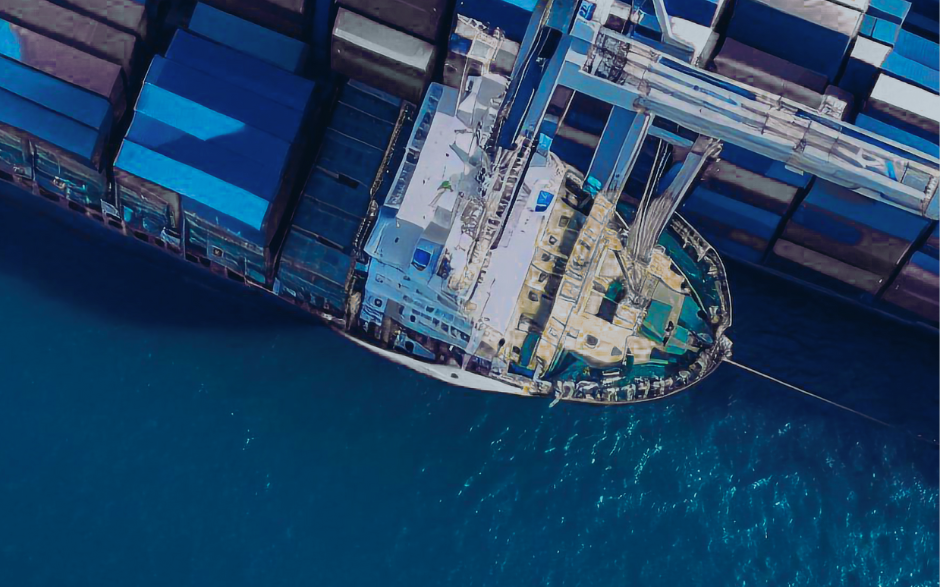
The maritime industry, encompassing both commercial shipping and the transportation of goods, has undergone a continuous effort to evolve. Notably, the sector has experienced a shift propelled by technological advancements, transitioning from conventional methodologies to increasingly automated solutions.
This evolution is significant for the shipping industry that could benefit from aligning with the rapid progression of technology and meet the dynamic demands of the market. Nevertheless, with each progression in technology, in addition to the benefits, there invariably emerge associated drawbacks.
These drawbacks, if not effectively managed, have the potential to expose the industry to various threats and uncertainties.
The adoption of a Know Your Customer (KYC) and Know Your Business (KYB) solution serves as a strategic measure to counteract and protect from undesired activities, for example:
1. ID Theft, Human Trafficking and Piracy
KYC addresses the critical need for the validation of the identities of key personnel within the maritime domain, including the captain, crew members, and passengers, in order to battle human trafficking, ID theft and other unlawful practices. Identification and verification is imperative, serving as a formidable deterrent against such illicit activities. This is especially true as the crew is usually made up of people from across the globe, with different ID documents, verification requirements and language barriers.
Furthermore, KYC compliance plays a vital role in enhancing overall security and is essential in various scenarios, including accidents or intense situations, where efficient and precise identification is paramount for effective response and resolution. Just imagine what would happen if a maritime vessel found itself in the midst of a piracy attack and the identities of the captain, crew members, or passengers could not be efficiently and accurately verified.
In such a scenario, the lack of reliable KYC procedures could lead to delayed emergency response and increased vulnerability to terrorism. Through thorough verification processes, KYC acts as a robust mechanism to verify that every activity within the maritime sector is conducted in accordance with the prescribed legal parameters.
2. Financial Crime, Money Laundering and Corruption
Just like any company, legal entities within the maritime industry bear the responsibility to ensure that their financial transactions take place under a transparent and legally compliant framework. It is vital for the industry and the economy at large, that all financial activities are secure and comply with the law. To this end, both the onboarding process and the ongoing background checks of collaborative partners are essential in order to check their credibility and trustworthiness.
Transactions between companies and suppliers necessitate customer due diligence (CDD) and KYB procedures to encourage integrity, legality and enhance secure transactions. Depending on the associated risk factors, parties to a transaction or a contract may need to undergo increased monitoring as part of Anti-Money Laundering (AML) regulations and enhanced due diligence processes (EDD). This may be the case when trading with countries placed within FATF’s high-risk jurisdiction list.
Furthermore, proper compliance helps combat corruption. As explained by the Global Maritime Forum, corruption within the maritime industry is a multifaceted problem necessitating an industry-wide approach to its resolution. To grasp the significance, corruption taking place within ports alone has been estimated to cause a global loss in customs revenue of USD $ 2 billion each year according to the World Customs Organization. Overall, the economic impact of corruption creates a negative ripple effect on efficiency and inequality.
Consequently, the significance of taking steps against financial crime and corruption is globally significant for economic and social reasons.
3. Personal Data and Cyberattacks
As processes within the shipping industry digitize, there is an increasing risk of hacking and data breaches. Cyberattacks could target navigation systems, communication networks, or sensitive data, potentially disrupting operations and trade. These external disruptions could lead to a series of dangerous incidents, such as the leak of internal sensitive information, exposure of critical documents and personal data.
Being susceptible to cyber threats, the shipping industry faces a considerable risk and needs to secure its system from such illegal activities. As the industry takes steps towards digitizing previously manual and paper-based processes, this remains a critical point of consideration.
For example, when selecting a technology provider for KYC compliance, it is vital that the chosen solution is designed with security and the GDPR in mind, as is Sancus. Thereby optimizing compliance processes and fortifying AML measures without exposing oneself to new vulnerabilities and risks.
4. Lack of Trust and Public Perception
Trust and loyalty are crucial in all business relationships. Losing a customer’s trust can be disastrous, and this holds true for the maritime industry as well. Partners and customers want to feel secure in their choices, and trust is a key factor in maintaining loyalty and preventing them from seeking alternatives. Therefore, it is vital for the shipping industry to maintain a positive public image by consistently demonstrating a commitment to principles and quality, thus protecting their reputation.
To achieve this, implementing KYC and KYB procedures becomes essential. Not only does this protect and maintain business relations, but it also serves as a clear signal to business partners and customers that they are secure from risks allowing them to continue with business as usual.
Concluding, the maritime industry has evolved significantly with technological advancements, transitioning from traditional methods to automated solutions to meet market demands. However, with technological progress come potential drawbacks, exposing the industry to threats. To counter these challenges, implementing KYC and KYB solutions is crucial.
KYC addresses identity validation for key personnel, deterring illicit activities like human trafficking. It also ensures legal compliance, safeguarding against criminal activities, illicit financial transactions, and cyber threats. Additionally, KYC and KYB enhance public trust by demonstrating a commitment to security and legal integrity. Navigating within a legal framework is crucial across all facets of the shipping industry; and KYC/KYB implementation facilitates seamless compliance by ensuring that all operations align with authorized legal standards.
Find out more about our tailored KYC solution: Sancus for Shipping





